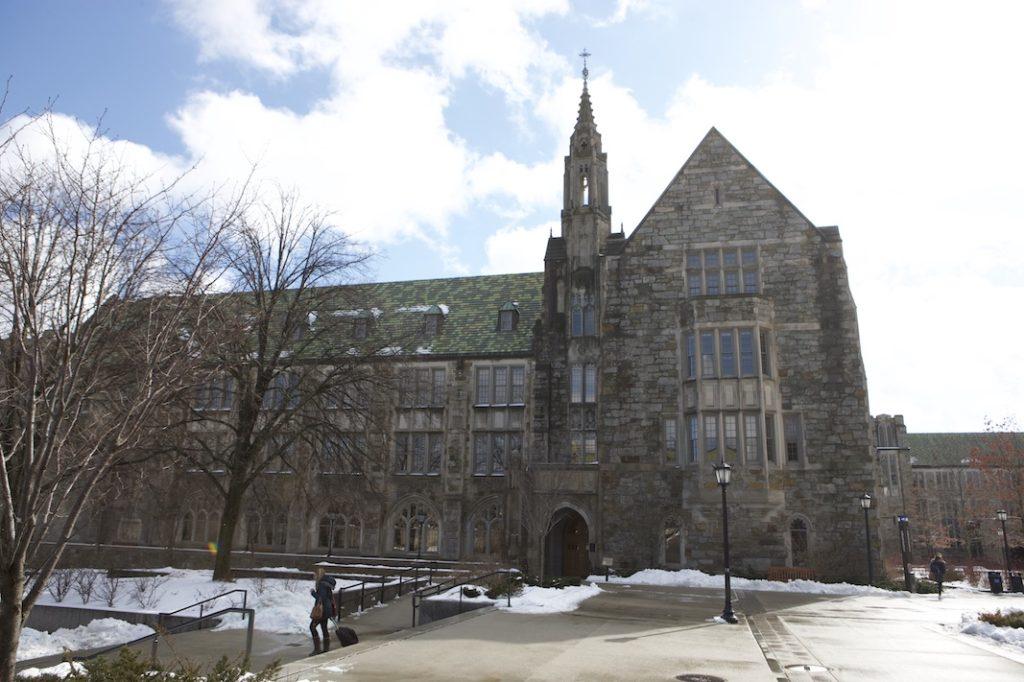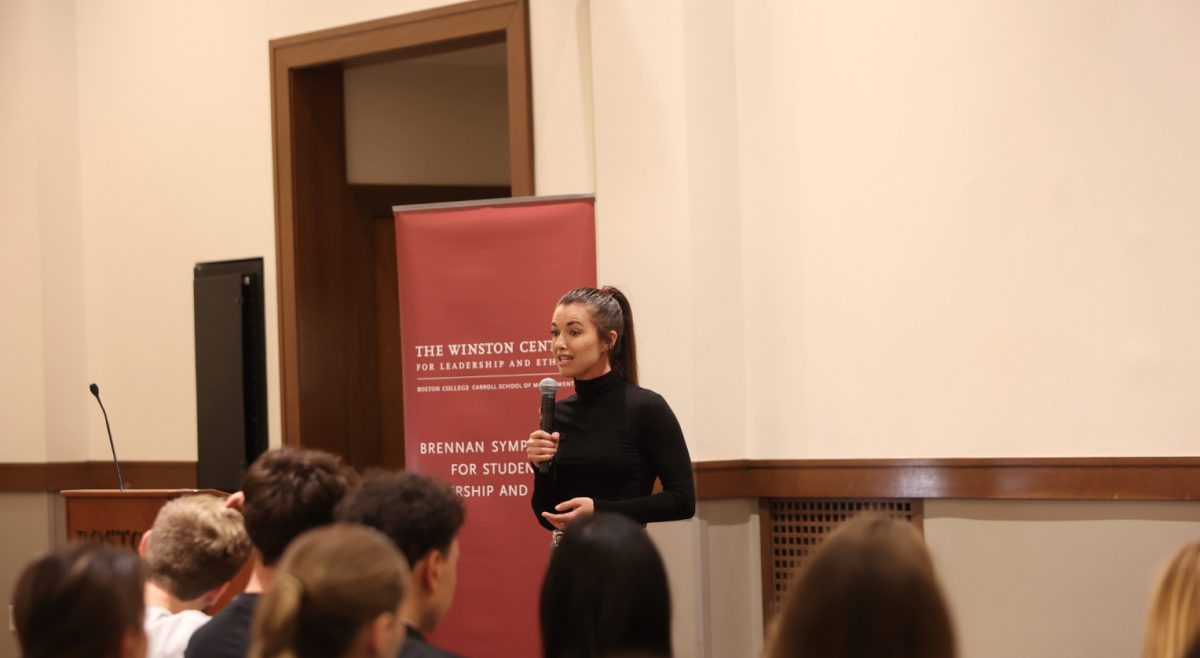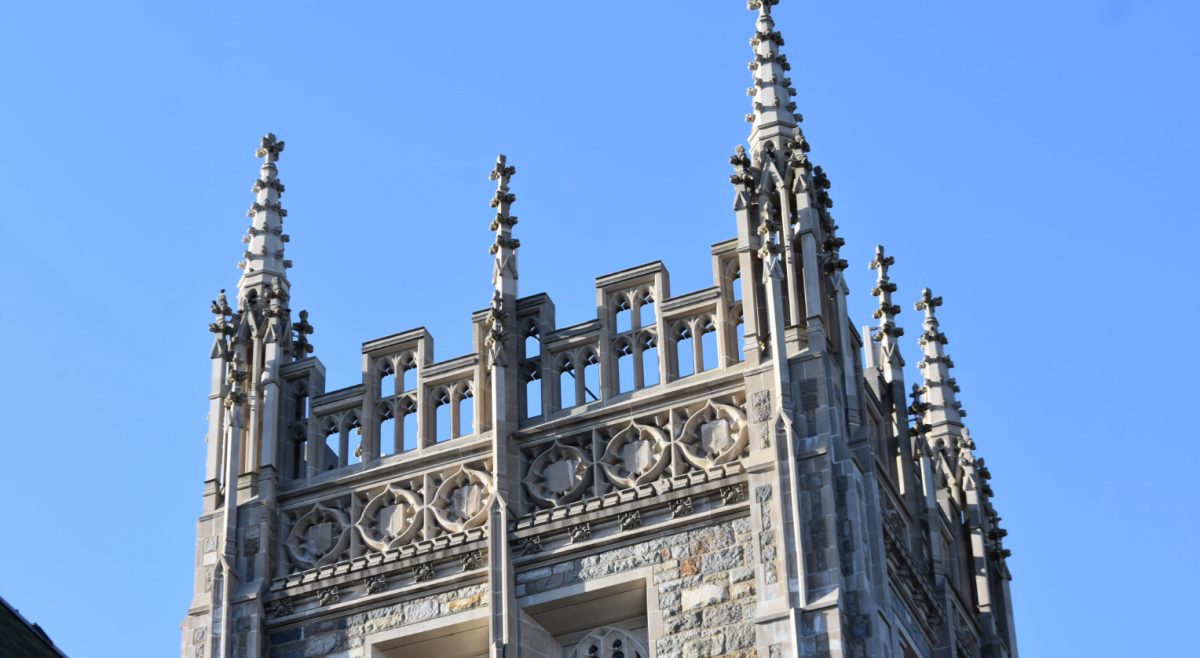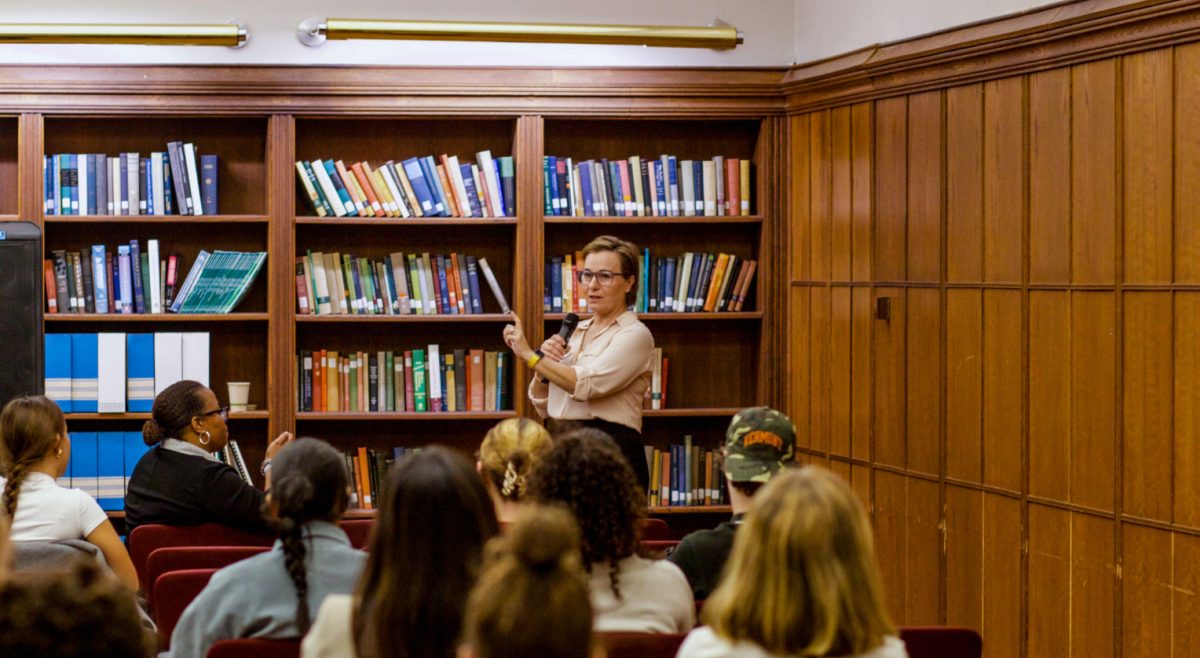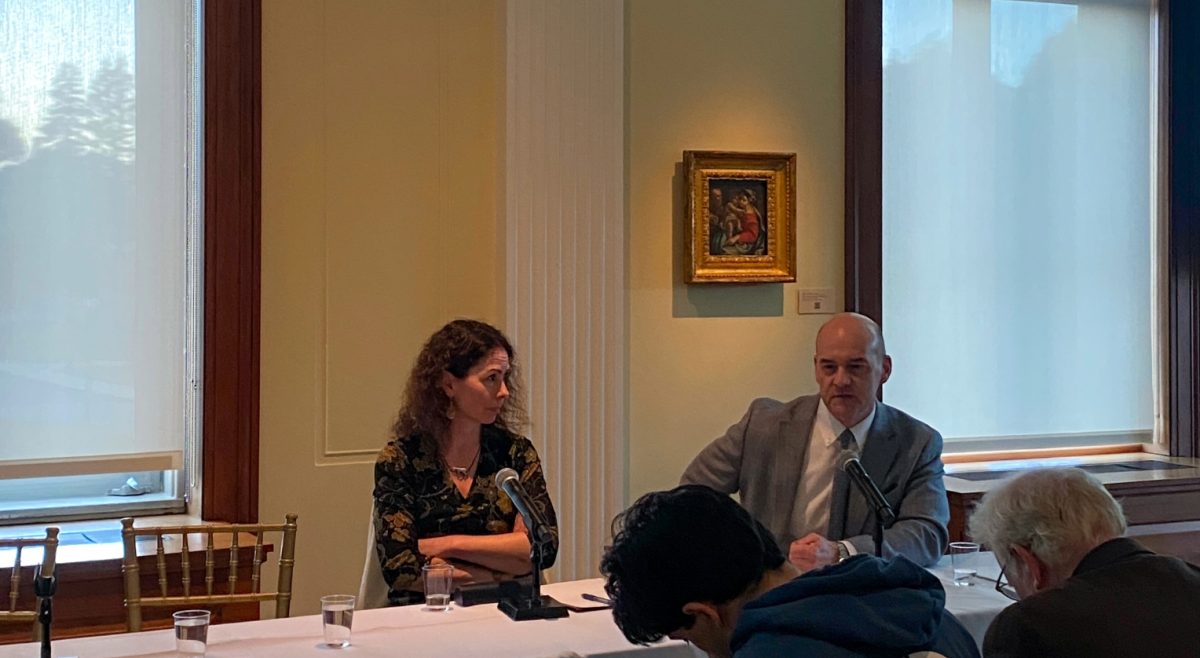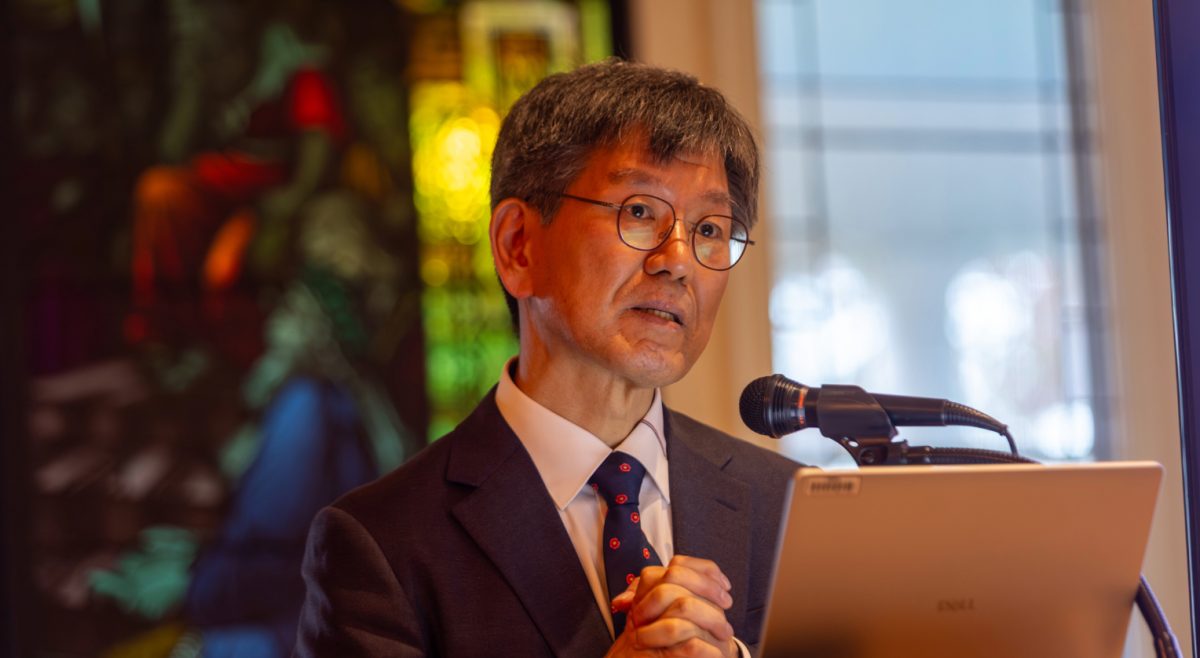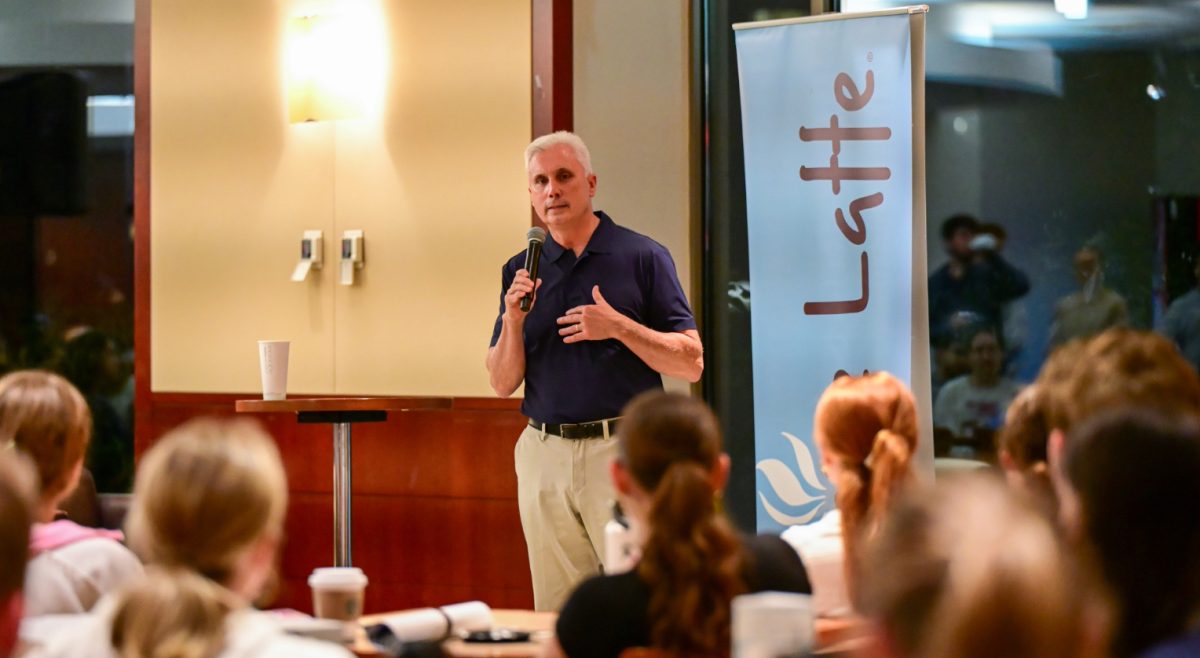The Office of Undergraduate Admissions announced on Thursday that Boston College will partner with QuestBridge, a nonprofit organization that helps low-income students apply to colleges and universities, beginning with the class of 2025. Director of Undergraduate Admissions Grant Gosselin said in an interview with The Heights that the QuestBridge partnership will help an underserved population find their way to BC.
“We are looking to always continue to diversify our student body to work toward our efforts around social mobility and helping students continue to find great matches in the college process,” Gosselin said.
The organization successfully placed over 2,000 students from families earning less than $65,000 in 2019—QuestBridge’s 15th year of operation—according to a QuestBridge release. Just over 15 percent of BC students come from such families—the bottom 60 percent of the national income scale, according to a 2017 study by the New York Times. The same study found that about 16 percent of BC students come from families in the top 1 percent, meaning an annual income of $650,000 or more.
“We view our responsibility as trying to bring together a class every year that fully represents the world and the country,” Gosselin said. “[Low-income students] are a population that can be difficult to reach, and so QuestBridge seems like the perfect partner for us to try to identify these top students.”
Participants must achieve a PSAT or SAT score above 1310 or an ACT score above 28—the 87th and 88th percentile of respective SAT and ACT test-takers, according to 2019 CollegeBoard and ACT data.
“As a proud alumna, I am thrilled that QuestBridge Scholars will have the opportunity to learn, grow, and develop into engaged world citizens within BC’s deep traditions of educating the whole person and living in service to others,” said Miriam Lee, QuestBridge’s Chief Operating Officer and BC ’01, in an email to The Heights.
“We are grateful for BC’s commitment to access for outstanding students from low-income backgrounds, and look forward to partnering together to provide life-changing opportunities for our students on the Heights,” Lee added.
QuestBridge primarily operates through its matching program, which asks participants to create a ranked list of partner schools, and the schools in turn rank QuestBridge applicants’ desirability. Gosselin said that the matching process can widen the range of schools that low-income students are considering and aid families lacking knowledge about the college admissions process.
“A lot of research shows with underrepresented students, particularly low-income students, there is a significant number that are undermatching in the college process,” Gosselin said. “Low-income students may not have the resources that higher-income students or better-educated families may have about the college process, and many of them choose to go to a local institution and are not realizing their potential.”
All partner universities must employ an Early Decision admissions model, which requires applicants to commit to attending the school should they be accepted early. BC switched to Early Decision beginning with the Class of 2024, and QuestBridge was a minor factor in the move, Gosselin said.
Consideration of QuestBridge applicants occurs outside of the Early Decision process, rather than as part of the pool, Gosselin said. The University will make a commitment to admit a certain number of QuestBridge students, although the organization does not stipulate a minimum.
Students not accepted in the first round can apply through the second round of Early Decision or Regular Decision as part of the full applicant pool, Gosselin said, although there will be an indication that they applied earlier through QuestBridge.
“I’ve long admired Questbridge and its commitment to diversifying the pool of excellent applicants to many of the nation’s best colleges and universities,” Provost and Dean of Faculties David Quigley said in an email to The Heights. “Boston College’s new status as a Questbridge partner will greatly enhance our efforts to recruit students from varied backgrounds across the county, and I’m eager to welcome the first Questbridge participants to Boston College in 2021.”
BC is the first Jesuit university and second Catholic university—after the University of Notre Dame—to partner with the company. Of QuestBridge’s 42 partners, 18 are ranked in the top 25 of the US News and World Report’s 2020 National University Rankings, which placed BC at No. 37 this year. Three of the schools on the list—Notre Dame, the University of Southern California, and the University of Virginia—have admission pools that largely overlap with BC’s, according to the 2018-2019 factbook.
Gosselin lauded the standards for test scores that QuestBridge sets for applicants, and he noted that the requirements are as much about protecting the students as they are about protecting the universities.
“There really is very little academic risk, as these students are fully qualified when they come to Boston College, and that’s what we seek in every student we admit, “ Gosselin said. “There are some nonprofits that want institutions to take risks on students, and they are really trying to push [the students] that way. That doesn’t always set the student up for success if a student comes here and is struggling in their first year.”
He also pointed out that 91 percent of Pell Grant recipients at BC graduate in six years—just 1 percent less than the non-Pell population, and the 18th best rate in the country, according to US News and World Report rankings.
Gosselin said that QuestBridge was interested in BC for a number of reasons—chief among them that the University already meets full financial need, which the organization stipulates all participating colleges must do.
“A lot of families won’t look at elite institutions for fear that they’re out of reach, [and QuestBridge] works with these families from day one and says every single one of the schools on this list will completely meet your cost of attendance,” Gosselin said.
He also pointed to existing on-campus organizations such as the Montserrat Coalition, which provides mentorship and financial resources for low-income students, or the Learning to Learn office, which offers advising and academic support to first-generation students.
The University would also attempt to provide specialized support for QuestBridge-linked students at BC, according to Gosselin.
Gosselin added that a student organization for QuestBridge students similar to those existing at other partner schools may be created once they arrive on campus. Students would have to initiate the process with the Office of Student Involvement, he said, though the University may help accelerate the process.
Gosselin noted that beyond presenting low-income students with more options, QuestBridge provides the admissions office with the opportunity to reach a greater number of prospective applicants.
“There are 20 of us on our staff,” Gosselin said. “We visit over 800 high schools throughout the country and around the world each year, but we had almost 7,000 high schools represented in our applicant pool last year, so it’s not possible physically for us to visit every school out there.”
Featured Image by Madison Sarka / For The Heights

